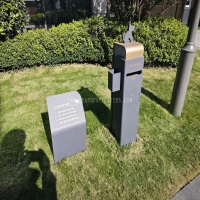Welcome to the website for landscape facilities products and knowledge.
How does the choice of material for the countertop impact the overall resistance to etching from acidic substances?
The selection of countertop material significantly determines its vulnerability to etching damage caused by acidic substances commonly found in households. Etching occurs when acidic compounds like citrus juices, vinegar, wine, or cleaning products chemically react with certain stone surfaces, resulting in dull spots, discoloration, or surface deterioration that cannot be simply polished away.
Natural stone countertops exhibit varying resistance levels based on their mineral composition and porosity. Marble, composed primarily of calcium carbonate, is highly susceptible to etching as acids readily react with its alkaline structure. Even weak acids like lemon juice can permanently damage polished marble surfaces within seconds. Granite, being an igneous rock with higher quartz content, demonstrates better but inconsistent acid resistance depending on its specific mineral composition. Some granite varieties containing calcite or dolomite remain vulnerable to etching.
Engineered quartz surfaces provide superior etching resistance due to their non-porous structure comprising approximately 90-95% crushed quartz crystals bound by polymer resins. This composition creates a chemically inert surface that effectively resists acidic reactions. Solid surface materials like Corian offer excellent etch resistance through their homogeneous acrylic composition, allowing damaged areas to be sanded and restored.
The material's finish further influences etching susceptibility. Polished surfaces show etching damage more prominently than honed or leathered finishes, where etching marks may blend better with the texture. Proper sealing of natural stones provides temporary protection but requires regular reapplication to maintain effectiveness.
Ultimately, material selection directly correlates with long-term maintenance requirements and aesthetic preservation. While all countertops benefit from immediate acid spill cleanup and protective measures, choosing materials with inherent acid resistance ensures lasting beauty and reduces maintenance concerns in environments where acidic substances are frequently used.
Related search:

Recommendation
Outdoor cat and dog feces trash can; Community pet trash can; Metal multi-color design